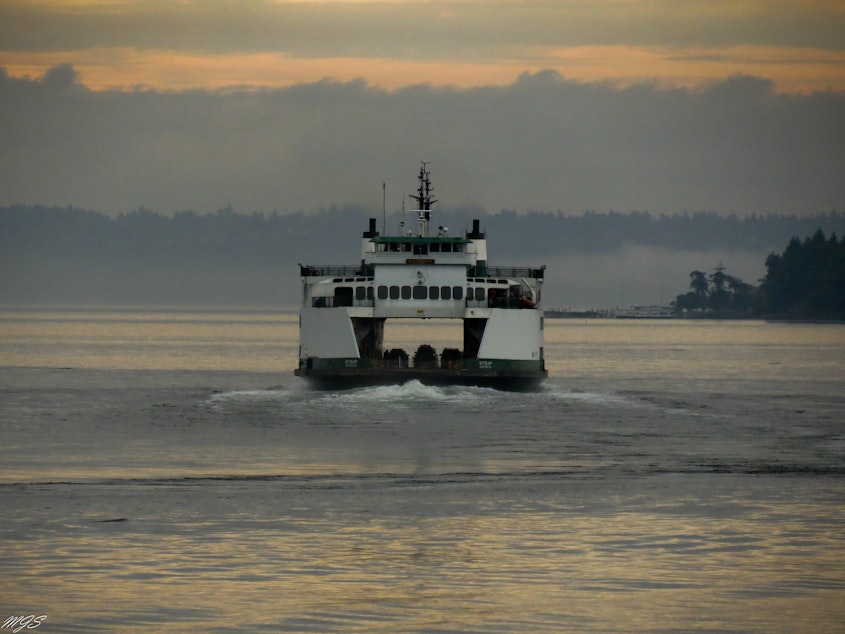Whale strikes could get more common as humpback numbers grow

NOAA believes it was a humpback whale that collided with a ferry in Elliot Bay
A launch, a thud, a trail of blood.
NOAA believes it was a juvenile humpback whale that a Bainbridge Island-bound ferry hit in Elliot Bay a few minutes after its 8:15 p.m. departure Tuesday night.
While the collision may have been a first in the records of Washington State Ferries, humpback whales are becoming more common in Puget Sound and the risk of future collisions with all manners of marine vessels is increasing.
“This is a little bit of a good news/bad news story,” said research biologist and whale expert John Calambokidis at Olympia-based Cascadia Research.
Since the late 1980s, humpback whale numbers have shown “a remarkable and strong recovery,” he said, increasing more than four fold to approximately 3,000 along California, Oregon and Washington. Commercial whaling was outlawed in 1966.
Sponsored
“But with that recovery for humpback whales has come expansion and increased use of areas that overlap with human activities, that also poses a threat to them,” Calambokidis said.
The risk extends beyond ferry traffic to all kinds of boats around the Salish Sea. “Elliot Bay is not a particularly hot spot for humpback whales,” he said, although certain whales seem to have taken a liking to the area and return year after year.
As for the whale that was struck Tuesday evening, no one knows for sure what happened to it, but it’s likely that it died. NOAA has received reports – of uncertain accuracy – that it sank, spokesperson for NOAA Fisheries, Michael Milstein said in an email.
“If that is the case, it could float back up from the gases associated with decomposition,” he said.
NOAA's Office of Law Enforcement is investigating the incident.
Sponsored
The Coast Guard called off its search around 11 p.m. Tuesday night after a response boat and helicopter couldn’t find the whale.
“If we get another sighting then we’ll launch on that, but we’re not actively searching right now,” said Petty Officer 3rd Class Trevor Lilburn, a public affairs specialist with the Coast Guard’s 13th District Headquarters in Seattle.
Washington State Ferries have no records of a ferry ever hitting a marine mammal, Marine Operations Director, Gregory Faust said.
“It’s such an odd occurrence that that whale would decide to breach right in front of a ferry. It’s a million-in-one shot,” he said.
The whale breached about five to ten feet in front of the boat Wenatchee , Faust said, so the collision could not have been avoided.
Sponsored
Most collisions with marine mammals go undocumented, Calambokidis said, so it was rare to have so many passengers witness the collision.
The crew didn’t see the animal, but there would not have been enough space to stop the boat. At 16 and a half knots, it takes about two boat lengths, or approximately 600 feet to stop, Faust said. The crew had no reports of whales in the area at the time. A crew member was posted as a lookout, scanning the horizon for marine traffic, he said.
The West Coast Marine Mammal Stranding Network is on alert for an injured or dead whale. If you see something, call 1-866-767-6114 to notify the network.




